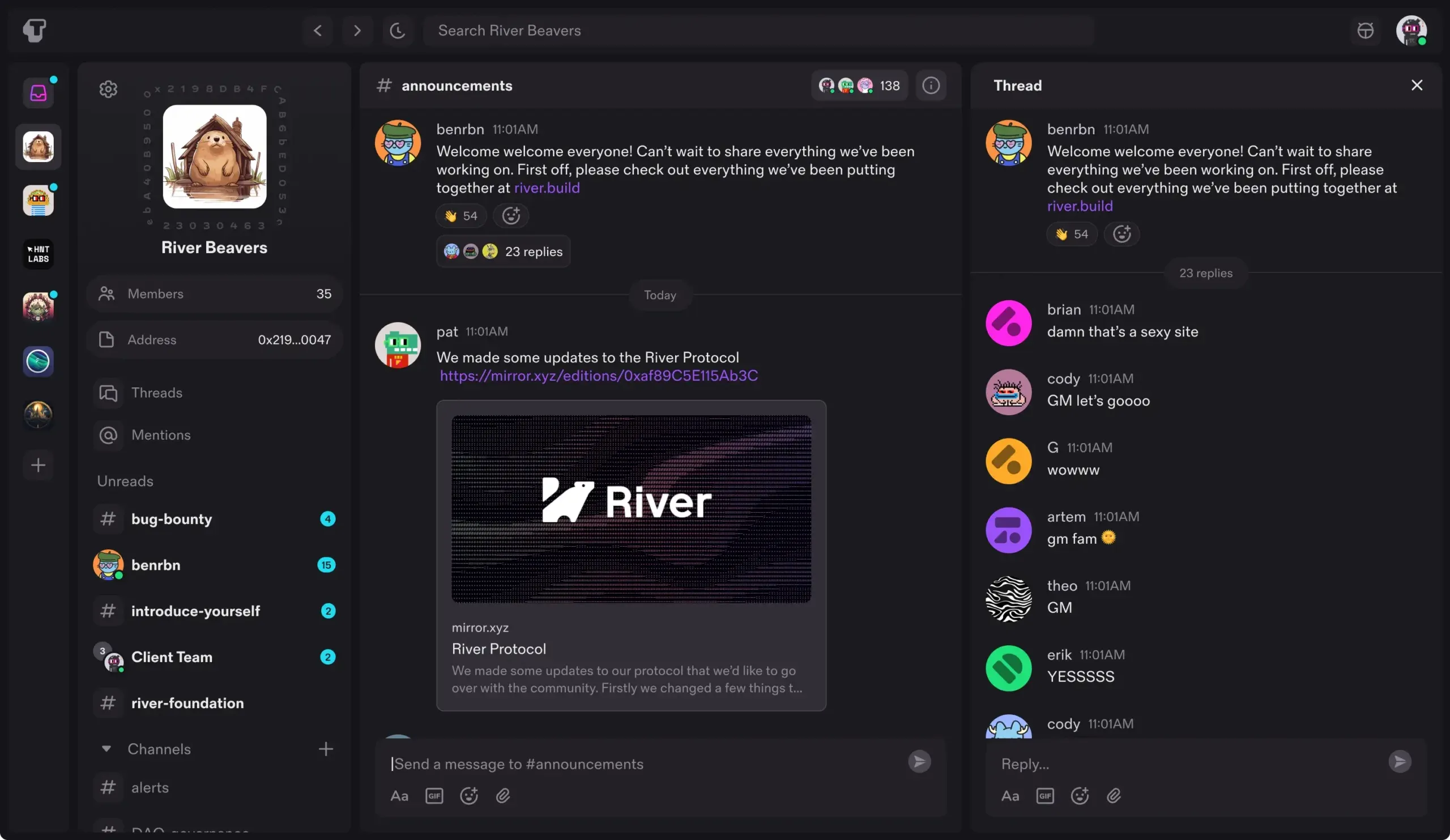As big tech companies like Google and Meta pump potentially unwanted AI features into their messaging platforms, calls are growing for decentralized and encrypted alternatives that don’t rely on the centralized heavyweights.
One company that wants to offer this service is Here Not There Labs, maker of the social app Towns and the recently launched River Protocol. River aims to provide an alternative to chat platforms like Slack and Discord, powered by blockchain technology and both customizable and private for creators.
“You see a lot of social media products that are decentralized, but you don’t see a lot of social media protocols,” Ben Rubin, co-founder and CEO of Here Not There Labs, told me. Declutter. “I don’t know social media [app] that is owned and operated by the participants in its network, who have the means to create trust between each other in a permissionless manner.”
Founded in 2023, River Protocol is designed to enable developers to build decentralized, real-time messaging applications using an Ethereum Virtual Machine (EVM)-compatible layer-2 blockchain, off-chain nodes, and smart contracts on Ethereum-scale network Base .

A screenshot of Towns built on River Protocol. Image: Here Not There Labs
According to the River Protocol website, the project is managed by the River Association, a decentralized autonomous organization or DAO, which allows RVR token holders to participate in the future of the protocol.
River Protocol joins a growing number of decentralized applications that provide secure communications and social media, including Farcaster, BlueSky, Nostr and Blockscan Chat. But while many social media protocols want to take over Twitter, River Protocol is more aimed at teams, companies and projects that need their own dedicated server.
“Each group is represented as a space, and each space is its own smart contract deployed across the chain,” Rubin said. “What the smart contract does is allow the group to grant membership in the space, and also program the rights of who can read and write, and under what conditions.”
According to Rubin, this type of setup works best for large groups where members are assigned specific roles, such as moderators, or who need to set limited access to channels in the group.
River stores content off-chain and uses on-chain roll-ups. A custom appchain processes messages to maintain speed and provide a similar experience to Telegram or WhatsApp. This separation, Rubin added, ensures robust security of permissions and optimizes messaging to be fast and easy to use, while maintaining user control and decentralization.
“Although our main implementation is on-chain, you can read on [Ethereum] mainnet, Polygon or other chains to co-construct rules,” added Brian Meeks, co-founder and CTO of Here Not There Labs. “All of that creates a trust path for the messaging, which is what happens in the River protocol. But you can cryptographically verify that what is in the River protocol is what is allowed, based on what is on the chain.”
Other possible use cases for River Protocol beyond messaging apps, Meeks added, include connecting players of decentralized video games.
“Everything benefits from communication,” he said. “You can merge their protocol into your game, into your app, or into whatever other decentralized experience you have, and create a real-time provable, verifiable, end-to-end encrypted communications experience.”
Additional reporting by Sander Lutz.
Edited by Andrew Hayward

